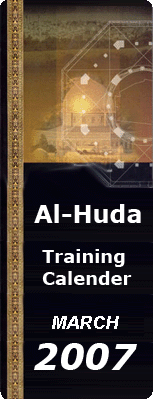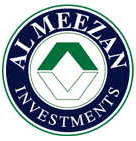| |
Yet another first for Dubai! The concept of an Islamic Stock Exchange (ISE), as the Dubai Financial Market is becoming, is timely because Islamic finance, warming up for the last 35 years, has generally taken off in the last five years: the post-9/11, petro-liquidity period.
Existing Sharia-compliant companies, and established and emerging asset class investment vehicles, are all looking for a Sharia-compliant platform. The conversion of the DFM, led by Dr. Hussain Hamid Hassan, with short-term and medium-term objectives, gives the concept immediate credibility. The 300-fold oversubscription to the DFM IPO, in the midst of a declining market, implies continued pent-up demand for Sharia-compliant offerings.
An obvious comparison is Malaysia, which is on strong ground in saying that they have an Islamic stock exchange, since nearly 86 per cent of over 850 listed companies are deemed compliant by the Malaysian National Sharia Council.
Whether that's acceptable to compliant investors from the GCC and Pakistan is for market participants to decide. Within the last two to three years, Islamic banks from the GCC have acquired Islamic banking licences to operate in Malaysia, but GCC Sharia-compliant portfolio investing on Bursa Malaysia has not generally materialized.
We must therefore look forward to hearing (probably in the medium term) about Islamic DFM's definition of acceptable Sharia compliance for companies and products, regulation of appropriate behaviour by market participants, and the ability of Islamic DFM to take a pro-active and targeted approach to court the compliant industry players and products.
Some issues are relatively black and white, and easy to address: non-compliant entities (such as National Bank of Dubai, Commercial Bank of Dubai, Emirates Bank International, Mashreqbank, etc.) will continue to list and trade under the 'necessity situation,' but will not be part of the Islamic stock exchange. Meanwhile, the Islamic financial institutions (such as Dubai Islamic Bank, Amlak, etc.) will be part of the Islamic stock exchange.
Thus we have an Islamic entity (DFM) with a 'conventional' window (non-compliant listings), which is the flipside of the present situation in Islamic finance, that is to say conventional institutions (such as HSBC, Citibank, etc.) with 'Islamic windows'.
Criteria
The difficulty arises with non-financial companies. What standard will the Islamic DFM be using for a Sharia-compliant company? Would it be the Sharia screens of the Dow Jones Islamic Market (DJIM), which has been adopted by AAOIFI (Standard 21), or some other screen that considers the overwhelming debt culture in and of Muslim countries?
Here, the eventual Sharia Board of DFM will have to scrutinize every company for primary business, revenue, and the three financial ratios, plus purification - as these are preconditions for investing in listed companies.
Having a compliant company is only the beginning, since that company has to be reviewed for continued compliance.
The question then becomes how frequently are companies reviewed. This becomes an important issue (on the financial screens) as the (local) markets are volatile, and some companies are more volatile than the markets.
Does the Islamic DFM put a company on 'probation or watch list' if it does not meet one of the financial ratios (say, fails the leverage ratio) during the review period, or does it go to the non-compliant status (which could result in a massive sell-off)? The objective should be to have rules that are transparent, resulting in confidence-inspiring stability.
On the listing of Sharia complaint products, what would be the standards for compliance? For instance, acceptable if (1) the product is signed off by a recognised Sharia advisor or board, or (2) the product meets the AAOIFI standards (whereas AAOIFI standards have only been adopted by three countries), or (3) a case by case analysis initially?
Furthermore, Islamic fin-ance will eventually establish compliant alternatives to futures, options, and derivatives. We already have profit rate swaps, currency hedging, Islamic hedge funds (shorting), IIFM establishing a Master Agreement on derivatives with ISDA, etc. Hence, will Islamic DFM follow or lead on such product concepts?
Another set of concerns include 'regulating' the behavior of the market participants. Will the exchange adopt the Islamic governance standards being established by Islamic Financial Services Board (IFSB)? How will the exchange handle leveraged lending by banks for IPOs (common during the IPO boom of 2004-05)? What about margin trading accounts (and discouraging day traders)? How will penalty fees against companies (for, say, reporting information late) and participants (for, say, insider trading) be enforced and allotted (administrative and charity)?
Further, will the Islamic DFM take a pro-active approach to target and attract compliant companies and products? It's well known that liquidity attracts listings, and listings add to deeper liquidity. Hence, a stand-alone Islamic platform is not enough of an inducement. Many other enabling prerequisites, such as confidence-inducing regulations, are necessary to entice listing compliant companies and products.
Finally, the jury is out on the question of Sharia-compliant capital flight, since Islamic DFM is at the announcement stage.
Assets
If one were to examine the location of the underlying compliant assets of Islamic equity funds, leasing funds, Murabaha funds, PE/VC funds, realty funds, etc., they traditionally have not been in the OIC (Muslim) countries, but OECD countries.
The key issue for Islamic DFM will be one of adding and expanding the universe of compliant companies and products, hence, offering a variety of compliant opportunities that have traditionally been available outside the region. But that raises the geographic concentration risk in a not so stable region.
Islamic DFM has to reach out to other OIC countries with stock exchanges, and establish MOUs for cooperation, coordination, and cross-listing of companies and products, whereby compliant investors can have (in theory) a 'one-stop' Sharia-compliant investment destination.
The Islamic DFM is pioneering news, but now the real work begins to fill in the framework with compliant companies and products for an Islamic Stock Exchange. |







